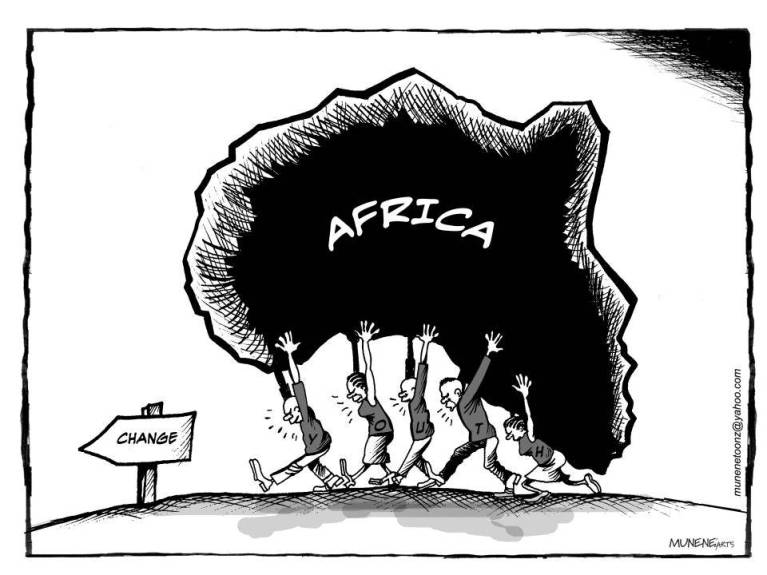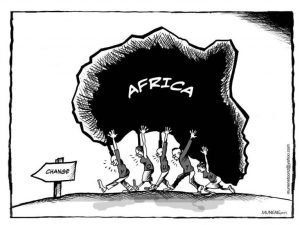Young people are perceived to be an important strength of Africa, as well as globally. This urges a necessity for practical policies and related programs that engage youth successfully in all aspects of growth of their countries.
Today, Africa needs more than ever to address the necessity of implementing youth policies to support the development and inclusion of the young generation. One of the biggest challenges facing governments in Africa is providing employment opportunities for more than 200 million young people so that they can have decent lives and contribute to the social and economic development of their countries.
The establishment of youth policies in Africa is quite difficult because of limited data which delays the measurement of the well-being of the African youth. Although the available data says that the youth population is largely growing, African youth has educational attainment but at the same time high unemployment rates.
Also, the lack of a universal definition of “youth” makes measuring the youth problems in Africa more difficult and the comparison of data across countries less consistent. The youth population in Africa consists of about 200 million – 20 percent of its population of more than 1 billion. This is a very large population.
In order to find effective youth policies, it is important to deal with the challenges facing youth, such as the lack of access to quality education; high rates of unemployment; and huge numbers of people suffering from poverty, political non-engagement and poor environmental health.
Previous policies and actions implemented have not successfully addressed the challenges of the youth, for example, the high unemployment rates, especially among women with significant regional differences and unpleasant consequences such as poverty, migration and diseases. Moreover, information on the development and implementation of youth policies in Africa are hard to find, even though countries of the region are at different stages in their youth policies process. Nevertheless, the estimation of problems facing young people is being compromised by data limitations. These limitations are reflected in the lack of jobs and youth economic growth agendas; a lack of comprehensive youth policy and the absence of its integration into national development plans. The African governments lack the capacity to assume comprehensive monitoring and evaluative processes.
An overview of the situation in African countries – although regions may differ – highlights several priority areas, particularly education, employment, health conditions and political participation, in addition to gender issues.
The economic issues concerned include how to deal with the huge youth unemployment rates by using an integrated approach and implementing various labor market policies. In order to achieve that, the national policies need to foster formal education – quality education – and training to increase opportunities for skilled youth who are ready for the job market.
In most African countries, cultural oppressions limit opportunities for youth to express themselves and to meaningfully participate in national social and political dialogue. Broad-based participation of the youth would advance good governance to improve democracy in the region.
There is a lack of comprehensive youth policies which are not part of the national development plans because neither human nor financial resources are devoted to youth issues. This has resulted in governments lacking the capacity to assume comprehensive monitoring and evaluation of processes.
The key recommendations arising from this analysis spotlight on harnessing the potential of African youth to boost economic development in the labor market to improve their living conditions. Also, boosting their participation in the political level is important in order to meet their needs.
It is important to expand infrastructure, especially in rural areas, to boost employment opportunities for youth;
Provide quality education for young people, training and informal programs and create youth employment opportunities for skilled persons;
African governments need to build institutional quality policies so as to respond effectively to the needs of individuals and organizations.
One of the most important steps in advancing the youth policy field in Africa is to develop the quality and scope of data of youth in Africa. Lack of reliable data leads to non-understanding of the issues and thus the inability to solve them: “You can’t manage what you can’t measure.”
It is highly recommended for policy-makers to establish a continuous evaluation approach in which they can test whether policies and actions have an impact on youth.
Also, governments need to include gender issues in their policies because females have been neglected despite their potential to contribute to the wealth of African countries.
Africa’s youth population is expected to grow in the upcoming years while the youth population in other parts of the world declines. Africa is the youngest continent in the world with about 70 percent of its population being 30 years of age or younger.
It is time to stand up, act and change! There will be no future development in Africa if its countries don’t invest in their youth. The richness of Africa is in its youth – something to appreciate and save.
Sana AFOUAIZ





